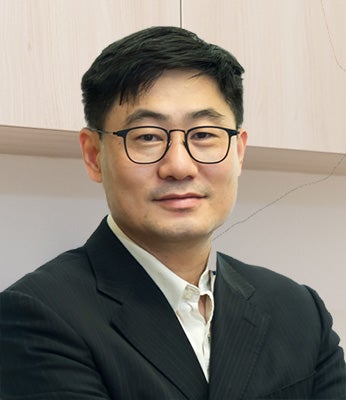

Provost's Chair Professor Wei Chen
Faculty & Department
Joint Appointments
Associate Dean, Dean's Office (science), Science
Professor, Integrative Sciences and Engineering
Professor, Chemistry, Science
Jt Appt - Professor, Physics, Science
Education
Doctor of Philosophy, National University of Singapore, Singapore
Bachelor of Science in Chemistry, Nanjing University, China
Bio
- Professional Preparation
- B.Sc (Chemistry), 2001, Nanjing University, China
PhD (Chemistry), 2004, National University of Singapore, Singapore
Postdoctoral, 2004-2006, Physics Department, National University of Singapore, Singapore
(b) Academic Appointments
| Professor | Chem Dept & Phys Dept, NUS | 01/2020-Present |
| Associate Professor | Chem Dept & Phys Dept, NUS | 07/2013-12/2019 |
| Assistant Professor | Chem Dept & Phys Dept, NUS | 01/2009-06/2013 |
| Lee Kuan Yew Research Fellow | Phys Dept, NUS | 07/2006-12/2008 |
Administrative Leadership Positions
| Vice Dean for Research | FoS, NUS | 10/2024-06/2026 |
| Associate Dean for Research | FoS, NUS | 04/2024-09/2024 |
| Director | NUS-TJU Joint Institute, NUS | 07/2020 – 06/2023 |
| Deputy Director | Centre for Hydrogen Innovations, NUS | 01/2022 –12/2023 |
Contact Information
Many technologically important devices, such as transistors, memories, lasers, solar cells, light emitting diodes, sensors, electrochemical energy storage devices, all exploit interfacial phenomena. Without precise control of the interface properties, many devices will not function properly. The broad objective of Prof. Chen Wei’s research is to have molecular-scale understanding of these interface properties, and hence to provide design rules for effective interface engineering approaches to improve device performance and materials efficiency, with particular emphasis on the atomic-Scale interface engineering for 2D-materials based electronics, optoelectronics, and neuromorphic computing, and interface-controlled nanocatalyst for energy and environmental research.
- Interface-controlled nanocatalysis for energy and environmental research
- Atomic-Scale interface engineering for 2D-materials based electronics, optoelectronics, and neuromorphic computing
Many technologically important devices, such as transistors, memories, lasers, solar cells, light emitting diodes, sensors, and so on, all exploit interfacial phenomena. Without precise control of the interface properties, many devices will not function properly. The broad objective of my research is to have molecular-scale understanding of these interface properties, and hence to provide design rules for effective interface engineering approaches to improve device performance and materials efficiency, with particular emphasis on the interface engineering for organic, graphene and 2D materials based electronic and optoelectronic devices, and interface-controlled nanocatalysis for energy and environmental research. I have authored over 400 papers in top scientific journals with more than 40,000 citations and H-index of 96, and selected as 2017, 2018,2019,2021,2023, 2024 Highly Cited Researchers from Clarivate Analytics.
- Interface-controlled nanocatalysis for energy and environmental research
- Atomic-Scale interface engineering for 2D-materials based electronics, optoelectronics, and neuromorphic computing
My Mentoring Style
How would you describe your mentoring style in terms of freedom given to your students?

Selecting Research Topics?
How do you guide your PhD students in selecting research topics?

Setbacks / Challenges
How do you handle setbacks or challenges faced by your PhD students?

Feedback
How do you give feedback on your students’ thesis drafts and progress?

Consultation Frequency
How often do you typically meet your PhD students one-on-one for consultation?

Research Group Meetings
How often do you typically hold lab meetings where your PhD students present their research work to the class?


